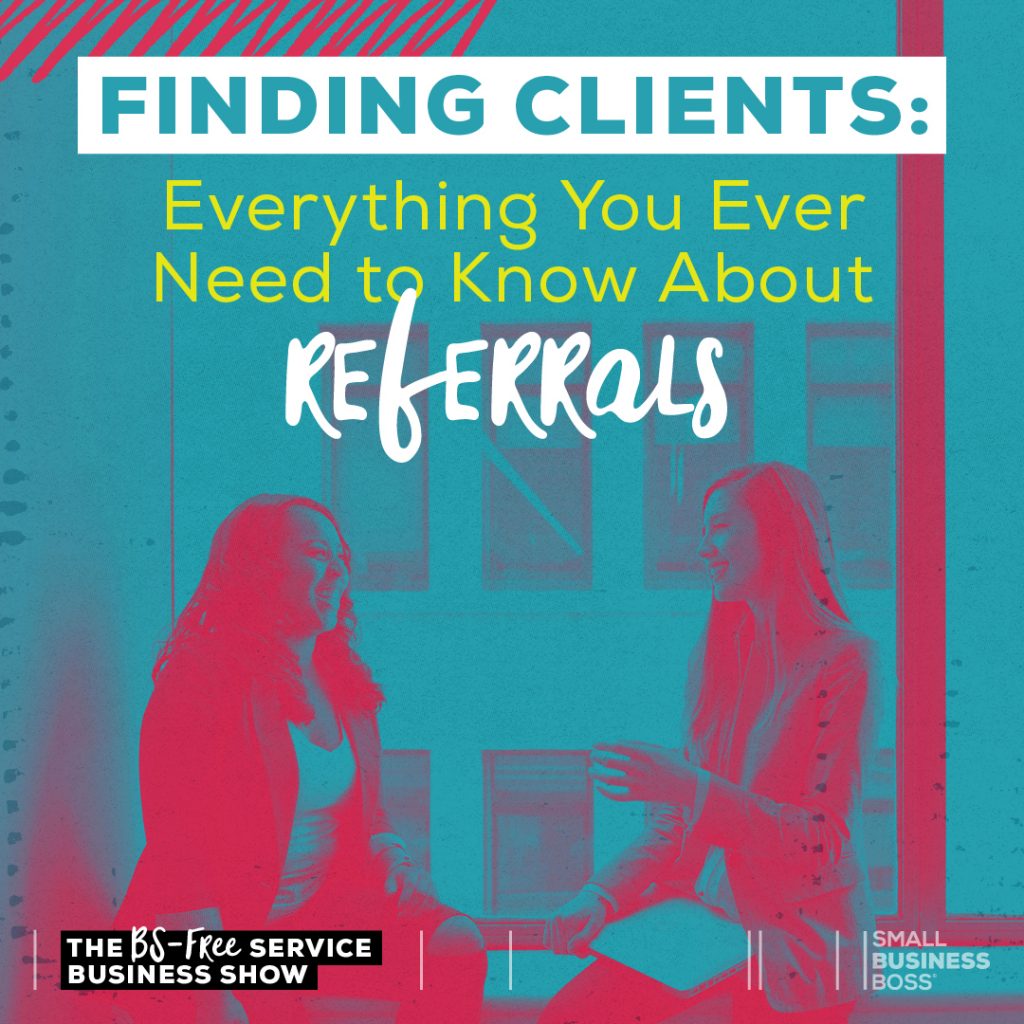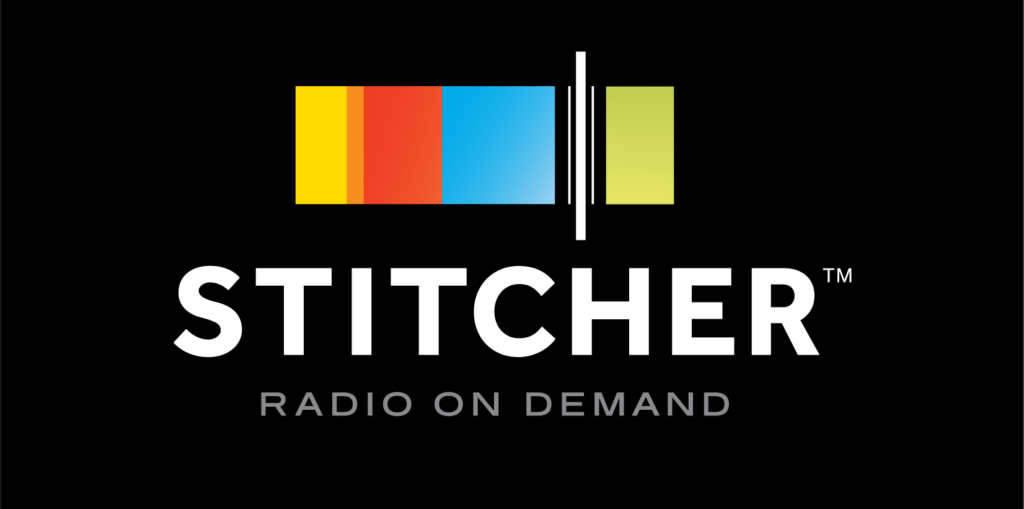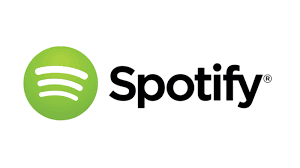
Episode 225: Finding Clients: Everything You Ever Need to Know About Referrals
Fall is coming up quickly, and if your business is anything like mine, it’s GO time for new business opportunities. To help you go after these opportunities, we’re doing a refresher on referrals in this episode, including everything you need to know.
I know, I keep talking about how as business owners, we need to look for new ways to find clients. But here’s the thing. As much as I talk about finding clients in other ways, referrals are our old faithful. Most of us have businesses that run on referrals.
In this episode, I’m going to dive into everything you need to know about referrals. Some of it you’ll already be doing in your business and just need a refresher on, and some things I have to say may surprise you.
Keep the Home Fires Burning
If referrals are part of your business development strategy, it’s critical that you make the effort to stay in touch with past clients, collaborators and anyone who refers potential clients to you.
We have so many ways to keep in touch, so there are no excuses. Whether it’s an email, DM or a card in the mail, make the effort to stay top of mind and show that you appreciate them. Plus, when you do this, it’s much easier to ask for referrals when you need or want them.
Ask and Ask Again
If this podcast had a t-shirt it would probably say “you need to stop waiting for referrals” as I feel like I’ve said this in 50% of the episodes over the past four years.
All joking aside, if you take nothing else away from this episode, stop sitting around and waiting for people to refer to you, and start asking. If you need help making that ask, you can find a script (which is the exact one I use) in the Double Your Freelance Income course – which is 100% FREE.
Not All Referrals Are Created Equal
Have you ever had a referral that turned into a nightmare client? Or a referral that was a terrible fit from the jump?
Over time, you may notice that you have specific referral sources that just aren’t a great fit. Many times this will be the result of your referrer not knowing what you’re currently doing, so take the time to educate your referrers as to what type of clients you’re looking for and what services you’re currently offering.
If you’re really not sure, start tracking your leads and where they come from. In doing this for 2019, I found that my best referrals came from current clients or other service professionals we collaborate with. More random referrals were less likely to work out.
In 2019, 20% of our leads came from referrals, but 42% of the time these leads weren’t a fit, meaning they didn’t get to the proposal stage. And from all the referrals we received, we only closed 25% of them, and those totalled only 6% of new revenue for the year.
You may have noted that nearly half of these leads didn’t make it to a proposal. This is a great reminder that just because someone was referred to you doesn’t mean it needs to be an automatic yes. It’s okay to decline the meeting or to skip writing a proposal if they’re not a fit. You can refer them onto someone else and be helpful, but you don’t have to say yes as you feel pressured.
Be a Power Referrer
Want more referrals? Be a powerhouse who makes referrals as much as humanly possible. If you see connections, make them. If you’re going to decline a lead, find them someone else to refer them to.
The reality is that making referrals is just good for your business, and it’s what an ethical, intentional business owner does. I can’t even tell you how many times I’ve referred a client or potential client to a direct competitor as I knew they’d be better served by that person for a specific project.
And that bosses, is just good karma. I don’t do it because I want anything in return, but I have faith it will come back to me.
Keep Your Door Open
As bosses, there are definitely times we’re maxed out, but with this we need to proceed with caution. The message that “we’re booked out” can completely backfire, as we’re telling people we don’t need new clients.
My take is that even if you’re booked out for months to come, you don’t know when things will change. You don’t know when you will have a surprise opening or the unexpected capacity to serve a new client.
Keep your door open, and don’t cut off potential referral sources by talking about how busy, booked or whatever you are. Instead, have a wait list or better yet, leave enough breathing room that if a dream client comes knocking you can say yes.
Referrals Shouldn’t Be About $$$
A common question I’m asked is if you should pay people to refer you. And my answer is a pretty firm no in most situations.
Why? In my experience, when money is at stake I’ve ended up with referrals that weren’t a great fit. They were more about the referrer wanting a cut, not making an introduction motivated from a place of being helpful.
For me, having money at stake sends the wrong message.
That may be different for your business, but I urge you to proceed with caution if you’re going to incentivize people to give you referrals. You must be clear about what makes for a good referral, and don’t give away too much.
I once had a referrer ask me for a percentage of every single invoice from that client. For me, that was a non-starter as there was significant work involved to serve that client. Instead, I paid a percentage of the first invoice as a thank you.
My preference is always a one-time payment (that they’re not expecting) or a personal thank you gift, over a set rate that motivates people to refer you.
If you work with other entrepreneurs, you’re familiar with affiliate marketing, so this may seem like a great idea, but I’d think carefully. There’s a big difference between paying out a percentage of the sale of a course versus that of services for obvious reasons.
Links for this episode:
What I Learned About Finding Clients in 2019


